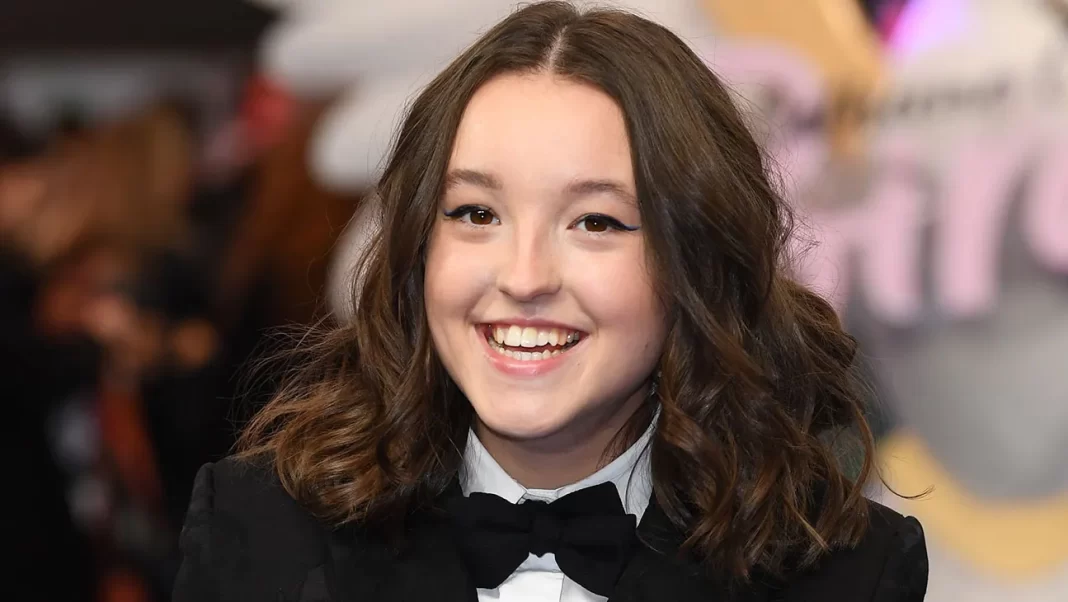Bella Ramsey, the 21-year-old breakout star of The Last of Us, has shared an intimate and empowering revelation about their personal life, openly discussing their autism diagnosis for the first time. The non-binary actor, who uses they/them pronouns, described the moment of receiving their diagnosis as “freeing.” In a new interview with British Vogue, Ramsey explains how the process unfolded, starting with a casual comment from a crew member on the set of The Last of Us who suggested that Ramsey might be autistic. That comment led to a formal psychiatric assessment, resulting in a diagnosis that Ramsey describes as both enlightening and validating.
A Journey of Self-Discovery: From a Casual Remark to a Formal Diagnosis
Ramsey’s diagnosis came during the production of the debut season of The Last of Us, a moment of introspection and self-awareness sparked by an offhand remark from a crew member. This crew member, whose daughter is autistic, had assumed that Ramsey might also be on the spectrum. While the comment was simple, it ignited a series of events that led Ramsey to seek a formal assessment. “I’ve spoken a bit about neurodivergence before, but I always for some reason didn’t want to…” Ramsey admitted in the interview, explaining their initial hesitation in discussing the diagnosis publicly.
The journey that followed was transformative for Ramsey, allowing them to understand their experiences and challenges through a new lens. “It enables me to walk through the world with more grace towards myself about not being able to do the easy everyday tasks that everyone else seems to be able to do,” they said, reflecting on how the diagnosis has changed their approach to life. For Ramsey, the autism diagnosis is not just a label but a key to understanding their behavior and interactions with the world around them.
The diagnosis provided clarity and understanding, allowing Ramsey to reconcile their experiences with a sense of self-compassion. However, Ramsey also emphasized that while the autism label feels helpful in understanding themselves, they still struggle with labels when it comes to gender and sexuality. “Labels do not feel comfy for me in any capacity, because I feel like I’m putting myself into a box,” Ramsey said, further clarifying their discomfort with rigid categorization in those areas. Despite this, they feel comfortable sharing their autism diagnosis because it allows them to “unmask immediately” and be authentic in their interactions with others.
Embracing Authenticity: “There’s No Reason for People Not to Know”
Ramsey is now using their platform to advocate for greater awareness and understanding of autism, especially in the entertainment industry. They spoke candidly about their decision to be open about their autism, stating, “My experience of moving through the world is as an autistic person.” For Ramsey, disclosing their diagnosis is not about seeking sympathy or attention; it’s simply about living authentically. “There’s no reason for people not to know,” they said, emphasizing that sharing this part of their identity is empowering and helps them navigate the world with more ease.
This openness about their neurodivergence also marks a significant moment in the ongoing conversation about representation in the entertainment industry. As an actor, Ramsey’s decision to disclose their diagnosis challenges traditional notions of what it means to be an actor or a public figure, highlighting the importance of visibility for autistic people in mainstream media. Ramsey’s willingness to embrace their true self encourages others to do the same, fostering a more inclusive and accepting environment both on and off the screen.
Their decision to publicly discuss their autism diagnosis also aligns with the broader movement towards inclusivity in Hollywood, where conversations around neurodivergence and mental health are becoming more normalized. By sharing their story, Ramsey is playing a crucial role in shifting perceptions and breaking down the barriers that often exist for people on the autism spectrum, particularly in an industry that historically has lacked representation of such experiences.
Looking Ahead: The Last of Us Season 2 and New Opportunities for Inclusivity
In addition to their personal revelations, Ramsey is preparing for the highly anticipated second season of The Last of Us, set to premiere on HBO on April 13. The new season, which picks up five years after the events of the first, will follow Joel (Pedro Pascal) and Ellie (Ramsey) as they settle in Jackson, Wyoming, amidst a community of survivors. However, peace is short-lived, as a violent event forces Ellie to embark on a journey for justice and closure, marking a pivotal moment in her character’s arc.
Season 2 of The Last of Us also breaks new ground in terms of accessibility and inclusivity, with the announcement that the season will feature an American Sign Language (ASL) version. This initiative is part of HBO’s ongoing efforts to expand accessibility for Deaf audiences, making the series more inclusive for viewers who rely on ASL. Naomi Waibel, SVP of Global Product Management at Warner Bros. Discovery, expressed excitement about the development, calling it “a meaningful step towards our goal of offering an inclusive streaming experience.”
For Ramsey, this commitment to inclusivity aligns with their own values of openness and acceptance. As they continue to navigate their career in the spotlight, their personal story of self-acceptance and authenticity adds a new layer of depth to their already impressive role in The Last of Us. With both their professional and personal journeys unfolding, Ramsey remains a powerful advocate for neurodivergent individuals, helping to create a more inclusive world for everyone, both on and off the screen.
